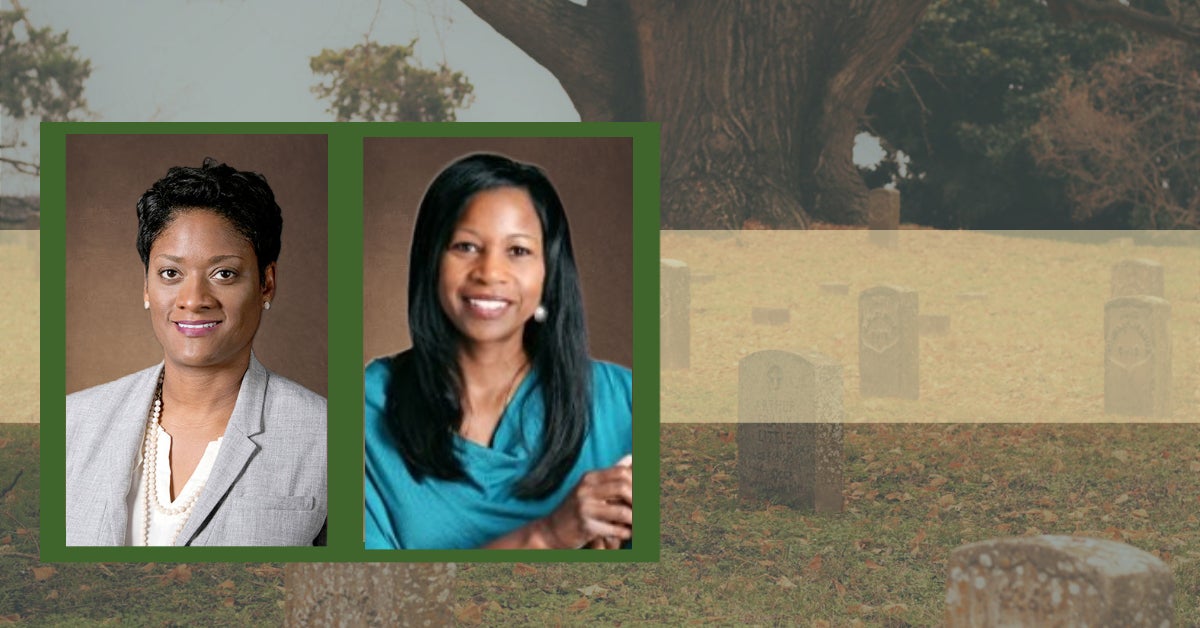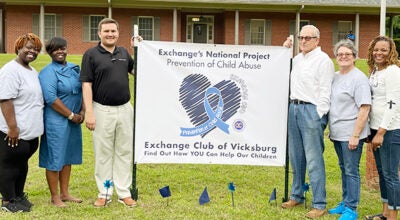CHANGING PERCEPTIONS: Consultants help provide link between Military Park, Vicksburg’s Black community
Published 3:00 pm Saturday, March 11, 2023
Shawn Jackson and Linda Fondren are involved in a project with the Vicksburg National Military Park to repair and restore a section of the park’s National Cemetery dedicated to U.S. Colored Troops that was damaged by erosion in 2020.
Neither Jackson nor Fondren will be involved in the physical work to restore the area and re-inter the bodies, but their job is equally important — to create a link between the community and the cemetery and help residents learn the story of the men whose final resting place was put in turmoil.
Jackson, the District 3 Warren County Supervisor, and Linda Fondren, executive director of the Catfish Row Museum, are consultants for the project; two of a group of people selected by the Park Service to provide what the National Park Service calls co-stewardship to help bring to the forefront the histories of the U.S. Colored Troops in Vicksburg and other areas.
It’s also an effort to bring new attention to Vicksburg’s national significance during the federal occupation and Reconstruction and to the under-told stories of those periods.
“Being an elected official, the whole goal (for the county) is to push information out to the public as far as I can push it out,” said Jackson, who represents the county, which is an official consultant.
Park archaeologist John Schweikart, she said, “has been charged to take on a very heavy project, and he’s made it very clear that his job is better when the community is engaged. When they can provide feedback and ideas.”
Jackson said she hosted a tour of the damage site with veterans and longtime residents of Vicksburg who actually didn’t know about the history of the Colored Troops during the Civil War, “And they were able to give helpful feedback and connect descendants, so a few things have happened just by trying to get that word out.”
She called her experience as a consultant multifaceted.
“My family was one of the founding families of Bethel A.M.E.,” she said, adding that many of the original members of Bethel were Colored Troops; “That’s how they got to Vicksburg.” She said the Rev. Hiram Revels, a former Bethel pastor and the first president of Alcorn State was in the USCT.
“So it was an amazing learning experience for me, to, for the first time in my life, make the connection between freedmen and enslaved men. Men who fought in the battle, but also understanding the collectivism between Black soldiers and white soldiers working together.”
She said the tour of the site also stirred interest in the park in some of her guests.
“Everyone who I took on the tour admitted that they had no idea that those amount of Black soldiers were interred there,” she said. “They had no clue that up to or over 40 percent were African American.
“I’ve had lifelong residents of Vicksburg say, ‘I’ve never had a connection to the park. I didn’t think that dealt with us.’ And even recently Gen. Robert Crear was in on that tour, and he was able to tell about what he and Robert Walker did to bring the African American statue out there (at the park).”
Now, Jackson said, “You have another segment of the community that is actually attached to and feel a part of that park, and we just never know how it can help open up more channels for tourism.”
The park’s work with the USCT, Fondren said, “Would be absolutely wonderful to bring visibility to the fact that these were soldiers of the United States and they deserve to be honored and recognized with a picture and fuller story.”
The Catfish Row Museum, she said, “Is very pleased to be part of this critical project.”
Speaking on Black history at a Taste of Vicksburg luncheon in February, Fondren said learning about the U.S. Colored Troops changed her impression of the Vicksburg National Military Park.
When she was asked why African Americans did not walk the park, “I said, ‘Well, it’s simple, because the park glorified the history of the Confederacy.’ Whether that was true or not, it was the perception.
“But what came about was the United States colored troops,” Fondren said. “I had not heard (of the troops), so I got offended by the word ‘colored’ — that they had named the troops after that.
“But then by simply walking in that park, walking with the rangers, having them explain what that park was all about, it opened me up to a world of knowledge,” Fondren added. “But not only that, it changed the perception of what African Americans thought about the park.”
Presently, she said, there are more African Americans walking in the park than before, “because we found another way to think about the narrative as restored, one of self-respect.
“You know, those monuments are beautiful up there and the battlegrounds are nature,” Fondren said. “But also when you learn the history, you can put all of that together. And that’s what was so beautiful.”







